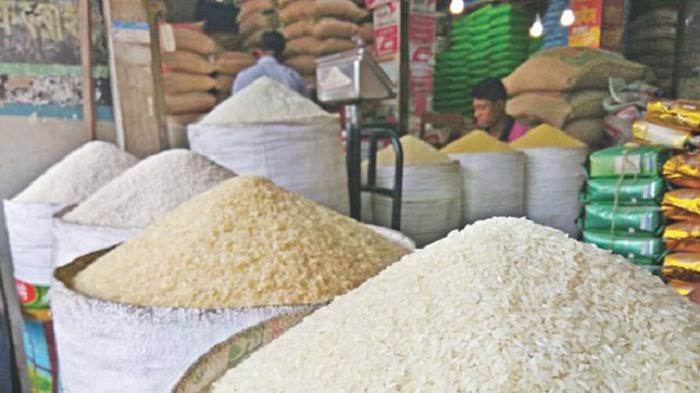
Amidst conflicting perspectives and interpretations, stakeholders in the nation’s maritime industry have expressed confusion and scepticism over the actual status of importation of rice and other staple food items such as poultry products, and palm oil among others. This is despite the Central Bank of Nigeria’s (CBN) recent lifting of the Foreign Exchange (Forex) ban on 43 items.
Recall that the Central Bank of Nigeria had lifted the ban on the importation of 43 items restricted from accessing foreign exchange on its official platform. The 43 items include Rice, Cement, Margarine, Palm kernel/palm oil products/vegetable oils, Meat and processed meat products, Poultry chicken, eggs, and turkey amongst others.
Checks by our correspondent last week revealed that many of the 43 items whose ban on Forex was lifted are still prohibited from being imported at the seaports and land borders.
Shedding light on the current situation, the Seme Chapter Chairman of the Association of Nigeria Licensed Customs Agents (ANLCA), Mr Onyekachi Ojinma highlighted that rice and other staple food items remain prohibited from entry through land borders.
Ojinma indicated that clarity about the prohibition and lifting of the ban on the 43 items might surface, upon the government’s announcement of fiscal policies hopefully in December.
The ANLCA Chairman clarified that despite the unofficial lifting of the ban on 43 items, including rice, the lack of formal gazetting and official announcements renders the importation status uncertain.
In his words: “For now, rice is prohibited from coming in through the land borders. I guess it is until the government announces their fiscal policies. They have not drawn up their budget and announced their fiscal policy.
“That will be done hopefully by next month (December). I believe all items will be listed there. Anybody that is telling you that rice is allowed at the border is lying to you.
“Of a truth, they have lifted the ban of the 43 items but it has not been gazetted yet and they announce that rice is officially unbanned but for now it is still banned” Ojinma said.
Also speaking, a clearing agent at the Seme border and Board of Trustees Secretary of the Association of Registered Freight Forwarders Nigeria (AREFFN) Mr. Innocent Elum criticized the government’s handling of the rice importation issue, asserting that the purported lifting of the ban on rice imports should reflect in practical importation activities.
Elum highlighted the absence of visible rice imports through ports or land borders, indicating that the situation remains unclear.
He however opined that the lifting of restrictions on the importation of rice alongside other items seems political.
He said: “The politics in rice importation is one that is very complex. Government is playing politics with the matter. Otherwise, if you say you have lifted the ban, or you’re giving it a different name; that you have removed it from the ban on foreign exchange, then we should see that playing out as a matter of fact.
“We should see rice coming in or being imported by people through the seaports and the land borders. But we have not seen that. All we’ve heard is that 43 items have been removed from foreign exchange and we have not seen anything in practical terms with regards to that”.
Offering further insights into the CBN’s regulatory actions, immediate past Seme Border Chapter Chairman of ANLCA, Alhaji Bisiriyu Lasisi Fanu explained that while the ban on Forex was lifted for 43 items, specific government policies prevent commodities like rice and turkey from entering the country.
Fanu emphasized that despite the Forex ban policy shift, government policies still hinder the entry of these specific items. He said the same issue applies to the prohibition of the importation of second-hand vehicles through the land borders.
Explaining, he said: “The issue of lifting the ban on the 43 items is just a regulation by the Central Bank of Nigeria. They probably thought it was because of the ban that made dollars to become scarce; that was why they lifted the ban. But rice specifically and turkey cannot come in because they have been prevented by government policy that those things we are producing specifically should not come in.
“So the lifting of the Forex ban is at the prerogative of the CBN. That is why it was announced that the ban on Forex was lifted on the 43 items but, however, rice cannot come in.
“The same thing applies to Tokunbo or second-hand vehicles. They are not banned from coming into the country, but government policy is that you cannot bring it through the land borders. That is the issue on ground” Fanu concluded.
When contacted, the Public Relations officer of the Nigeria Customs Service (NCS) Seme Command, Husseini Abdullahi however promised to get back to our correspondent on the status of rice and other staple food importation as he said he needs to get clarity from the Customs Area Comptroller (CAC).
However, as at press time, no information was made available to our correspondent.















